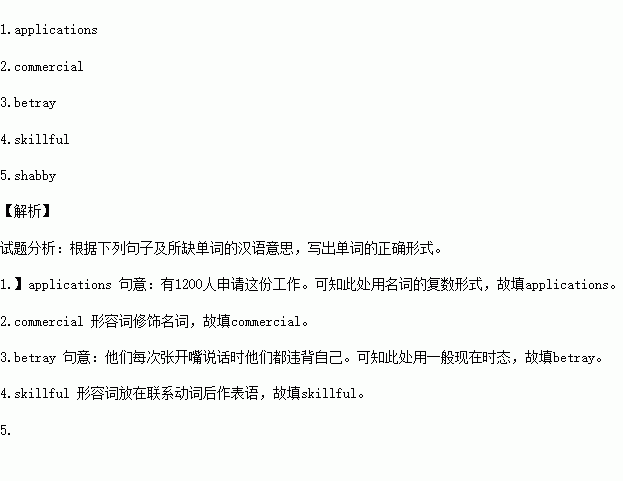题目内容
单词拼写。根据下列句子及所缺单词的汉语意思,写出单词的正确形式。
1.There were 1200 (申请) for the job.
2.The film was a (商业的) success.
3.But they (背叛) themselves every time they open their mouths.
4.After a few years of practice, he became very (熟练的)at drawing.
5.An old man in (破旧的) clothes came to the door.
练习册系列答案
 阅读快车系列答案
阅读快车系列答案
相关题目

